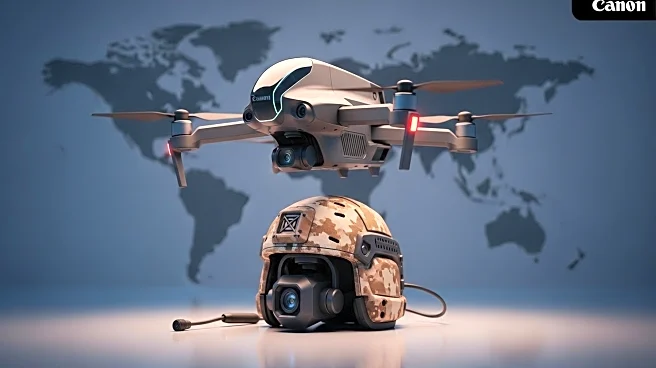What's Happening?
European defense startups are experiencing a surge in venture capital investments as geopolitical tensions, including the Russia-Ukraine war, drive increased defense spending by the European Union and NATO. Venture capital investments in European defense and security startups reached a record $5.2 billion in 2024, according to a report by Dealroom and the NATO Innovation Fund. This growth contrasts with a shrinking overall VC market in the region. The trend is further accelerated by NATO's new spending target, which has increased investor demand for publicly listed defense companies. European startups are focusing on software-driven and AI-enabled technologies, such as drones, cybersecurity, and space innovations, areas traditionally outside the core remit of legacy defense firms.
Why It's Important?
The influx of venture capital into European defense startups signifies a shift in the global defense landscape, with Europe emerging as a significant hub for defense technology innovation. This development could lead to increased competition with U.S. defense firms for government contracts, potentially altering the balance of power in the defense industry. The focus on software and AI-driven technologies highlights a move towards modernizing defense capabilities, which could have long-term implications for global security strategies. Additionally, the involvement of U.S. investors in later-stage venture rounds provides the necessary capital for scaling these innovations, further integrating transatlantic defense collaborations.
What's Next?
As European defense startups continue to attract investment, they may face challenges in achieving successful exits, with the sector's trajectory still uncertain. The ramping up of defense spending is a relatively new phenomenon, and it may take several years for the influx of capital to significantly impact defense innovation. Startups will need to leverage their nimbleness to compete with larger defense primes for government contracts. The geopolitical landscape will continue to influence investment strategies, with European firms potentially prioritizing local companies for defense contracts.
Beyond the Headlines
The growing role of venture capital in defense innovation raises ethical and strategic questions about the commercialization of military technologies. As startups focus on dual-use technologies, the line between civilian and military applications may blur, necessitating careful consideration of regulatory and compliance frameworks. The emphasis on AI and cybersecurity also underscores the importance of addressing potential vulnerabilities and ensuring robust security measures.









